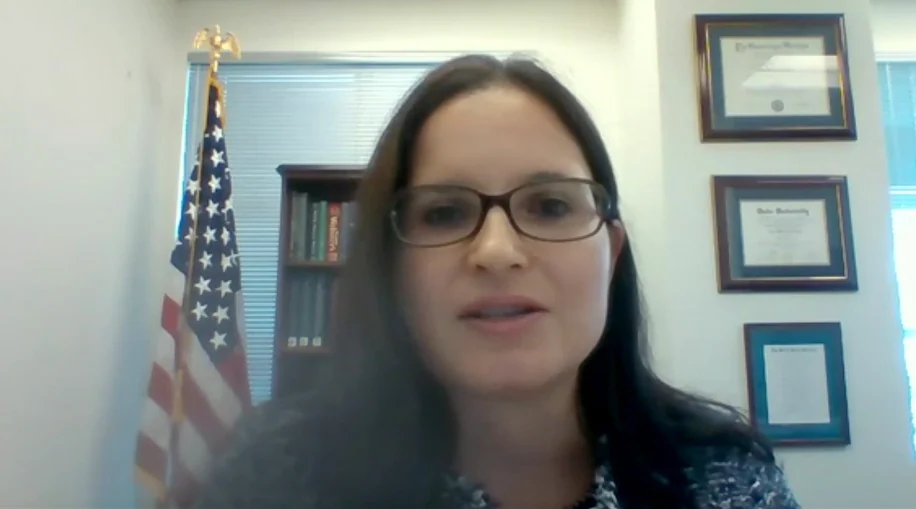Stan Woodward Contemplating His Former Client Might “Become Unavailable” for Testimony
Last week, Judge Aileen Cannon had the much delayed Garcia vote to make sure that Trump’s co-defendants, Walt Nauta and Carlos De Oliveira, had knowingly waived any conflicts their attorneys had. The reporting on the hearing all focused on the scolding Cannon gave the Special Counsel’s Office, because they had brought up a possible risk — that Stan Woodward would impugn Yuscil Taveras during closing arguments — they hadn’t previously briefed.
I do want to admonish the Government for, frankly, wasting the Court’s time because, had you brought up these issues in an appropriate way, we could have done this without circling the wagons and creating confusion that was unnecessary. So, I am disappointed in that.
Immediately after the hearing, journalists presented conflicting stories about the hearing, some reporting that biggest flashpoint was an assertion by the government that Stan Woodward should be categorically excluded from cross-examining his former client Yuscil Taveras at trial, and others reporting the problem to be that SCO’s David Harbach suggested that Woodward should also be prevented from maligning the man he used to represent in closing arguments.
None of the coverage I saw got something very basic right: what the past briefing had been about.
The past briefing was about whether to have a Garcia hearing. It wasn’t about what to include in a Garcia hearing.
David Harbach, arguing for Special Counsel, even pointed that out in the morning session.
MR. HARBACH: Specifically it is our view that a lawyer who suffers under a conflict, that — in that situation the lawyer is precluded from — by his duty of loyalty to his [former] client, from arguing to the jury that his former client lacks credibility or attacking his former client’s character.
And those obligations flow from the lawyer’s duty of loyalty to his or her former client, and do not turn on whether specific confidential information was provided to the lawyer that might or might not facilitate better or worse cross-examination of the witness.
THE COURT: All right. So, did you make this argument about sort of weaker arguments to juries in your papers?
MR. HARBACH: Not in our papers suggesting that we needed to have a hearing because that wasn’t necessary for the Court’s obligation to conduct this hearing.
Harbach pointed out — rather meekly — that previously they had only been arguing that Cannon needed to hold a hearing. She never asked what to include in it.
Don’t believe me? Here’s the tell: After the hearing, Judge Cannon ordered just that briefing.
On or before October 17, 2023, the parties shall meaningfully confer to further clarify the nature, scope, and potential manifestations of the conflicts alleged by the OSC regarding Stanley Woodward’s former representation of Trump Employee 4 and current representation of Witness 1. 1 This conferral should include a comprehensive discussion of the ways in which the OSC believes that Mr. Woodward’s former representation of Trump Employee 4 and current representation of Witness 1 could adversely affect Mr. Woodward’s performance so as to render his assistance of Defendant Nauta ineffective, in violation of the Sixth Amendment.2 The OSC shall disclose to defense counsel all legal authorities in support of its position so that Mr. Woodward may adequately advise Defendant Nauta prior to the continued Garcia hearing.
Sure, she blamed Jack Smith’s team, pretending they brought up new stuff. They did! But they did so only because she had never considered the full scope of the conflict.
She still isn’t. She views the conflict exclusively in terms of Nauta’s rights; she’s ignoring Yuscil Taveras’ right to have his past attorney-client privilege respected.
None of the discussion at the hearing addressed the obligations under the Florida Bar, which SCO included in their original motion.
The Rules Regulating the Florida Bar reflect these concerns, providing that, absent informed consent, a lawyer “must not represent a client” if “there is a substantial risk” that the representation “will be materially limited by the lawyer’s responsibilities to another client” or “a former client.” Fla. Bar R. Prof’l Conduct 4-1.7(a).4 Informed consent requires, among other things, that “each affected client gives informed consent, confirmed in writing or clearly stated on the record at a hearing.” Fla. Bar R. Prof’l Conduct 4-1.7(b)(4). The Rules further provide that “[a] lawyer who has formerly represented a client in a matter must not” either “represent another person in the same or a substantially related matter in which that person’s interests are materially adverse to the interests of the former client unless the former client gives informed consent” or “use information relating to the representation to the disadvantage of the former client except as these rules would permit or require with respect to a client or when the information has become generally known.” Fla. Bar R. Prof’l Conduct 4-1.9(a)-(b). The commentary to the Rule explains that “information acquired by the lawyer in the course of representing a client may not subsequently be used by the lawyer to the disadvantage of the client without the former client’s consent.” Fla. Bar R. Prof’l Conduct 4-1.9 commentary. [my emphasis]
And because journalists were so focused on Cannon blaming prosecutors, forgetting that she has already blamed prosecutors for her own fuck-ups and manufactured problems, they missed two specific things that Woodward said.
First, as ABC noted, Woodward was angriest that he might be be prevented from cross-examining Taveras. As part of his argument, he suggested he didn’t have to address that eventuality because Taveras — still a Trump employee — might instead “become[] unavailable.”
MR. HARBACH: So, that is why we think in this case it is crystal clear that Mr. Nauta should be advised and should be well aware of the possibility, likelihood, eventuality, however your Honor would like to put it, that his lawyer would not be able to cross-examine Trump Employee 4 at trial. That much seems clear, and we don’t, frankly, understand how Mr. Woodward could think that he could cross-examine Mr. — Trump Employee 4 under these circumstances. We are at a loss.
[snip]
MR. WOODWARD: To presume that I am incapable of cross-examining him is a presumption that is unnecessary because, contrary to the Government’s position, we don’t know that he will testify in this trial. There is the potential that the Court could preclude him from testifying. There is the potential that he becomes unavailable.
Woodward’s solution to a conflict is to contemplate that Taveras might become unavailable for testimony. Woodward did this even while arguing that SCO was asking both too early and too late for a conflicts hearing.
Plus, most coverage missed Stanley Woodward’s past claims.
It is absolutely bullshit that cross-examination didn’t come up. In Woodward’s sur-reply, his last bid to prevent this conflict hearing, he stated that of course cross-examination wouldn’t be a problem, because another attorney (Sasha Dadan) was available.
11 The Special Counsel’s Office cites particularly inapt conflict cases which reveal the lack of a sound basis to request the hearing that the Office now seeks. See United States v. Braun, No. 19-80030-CR, 2019 WL 1893113, at *1 (S.D. Fla. Apr. 29, 2019) (hearing as to, ”two defense attorneys from [the same firm, jointly] representing two defendants in this case[.]”); United States v. Schneider, 322 F. Supp. 3d 1294, 1296-97 (S.D. Fla. 2018) (addressing representation of two co-defendants, where counsel represented first defendant in his role as a cooperating government witness, and then thereafter newly took on representation of the second defendant, the target of the cooperation, while still representing the first cooperating defendant). The case at bar – involving limited former representation, no ongoing joint representation, no indication of conflict resulting from the representation itself, no indication of attorney-client privileged information at issue, and no occasion for cross-examination by the counsel in question (as other counsel is available for same) – is entirely incompatible with these cases and demonstrates the insubstantiality of the Special Counsel’s Office’s present use of a conflict rationale. [my emphasis]
I wrote about Woodward’s comments in a post called, “Stan Woodward Thinks Aileen Cannon Is an Easy Mark.”
We will get SCO’s brief later today about the scope of what Cannon should be asking, with Woodward’s due tomorrow, and the follow-up hearing Friday.
But things are going to get testy. In her order, Cannon finally copped onto how testy they might get. She envisioned the possibility of considering a disqualification motion after the Garcia hearing.
2 To date, the OSC has not moved the Court to disqualify Mr. Woodward as counsel or to impose remedial measures on Mr. Woodward’s ability to perform as counsel for Defendant Nauta [ECF No. 97 p. 9]. Any consideration of disqualification or imposition of other remedial measures will be addressed following the Garcia hearing as part of the Court’s decision to accept or decline any proffered waiver.
Taveras has not waived privilege. It’s not clear how, under Florida Bar rules, Woodward can comment about the conflicting testimony Taveras gave while represented by the DC attorney.



